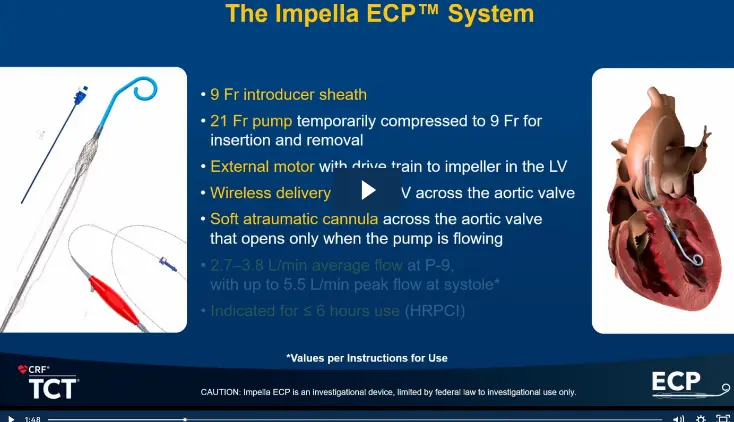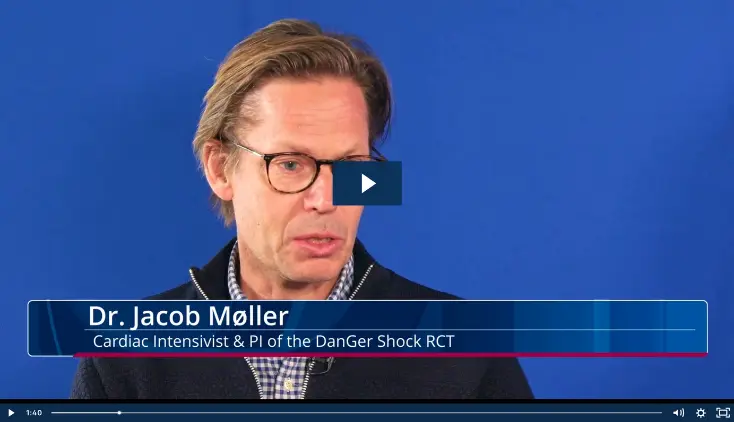Clinical Research & Data, ECMO, Escalation Therapy
Early MCS with Impella® and VA ECMO in Refractory Cardiogenic Shock
Jörn Tongers, MD, discusses his recently published paper evaluating the efficacy and safety of early combined mechanical circulatory support (MCS) with an Impella® heart pump and venoarterial extracorporeal membrane oxygenation (VA ECMO) in patients with refractory cardiogenic shock. Dr. Tongers is an attending interventional cardiologist and intensivist at Halle University Hospital in Germany.
Emphasizing the difficulty of treating refractory cardiogenic shock and the lack of current guidelines, Dr. Tongers explains that this paper sought to address questions such as how to proceed after stabilizing patients, how to wean or discontinue MCS therapy and in which order.
This single-center, observational study, conducted at a tertiary university center in northwestern Germany, focused on treating patients with cardiogenic shock who were refractory to gold standard therapy. Dr. Tongers describes the patients in the study as profoundly ill by hemodynamic parameters with two-thirds of the patients having biventricular failure (in an era before Impella RP®). He explains that depending on the primary issues and the experience of the referral center, some patients were treated with VA ECMO first and then Impella, while others received Impella first, and then VA ECMO.
“What we found is actually that the survival of our patients was quite favorable,” Dr. Tongers explains, compared to other papers, other patient populations and historical controls. He describes the approach as “stringent and kind of aggressive implantation of MCS,” with patients on dual MCS support for at least 50 hours. “We found that even in the longer MCS duration, that this therapy and our approach was quite safe, finding low rates of infection, finding low rates of bleeding complications and vascular complications.”
Dr. Tongers speaks to the safety profile table in his paper that shows a substantial rate of hemolysis, stating, “I want to point out, that you know, this is not clinical, obvious hemolysis.” He explains that hemolysis was subclinical in the vast majority of patients. “I cannot remember, going through data, one case of hemolysis that was clinically really highly or substantially relevant.” Dr. Tongers also highlights the small percentage of limb ischemia, which he attributes to having good protocols and ICU patient management.
In deciding when to implement MCS in patients with refractory cardiogenic shock, Dr. Tongers emphasizes carefully monitoring patients, asking whether ongoing treatment is sufficient, whether it is stabilizing the patient, whether lactate clearance is positive or negative, whether there is organ failure and where the patient is on the shock spiral. “Look carefully into your patient,” he concludes. “What can be fixed? What can be optimized? And if there is nothing you can do in addition to that, you should make a risk-benefit decision and go ahead and implant an Impella or an ECpella.”
NPS-1725


